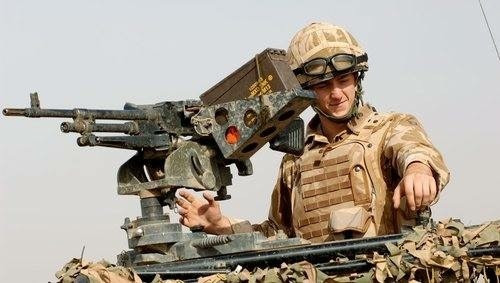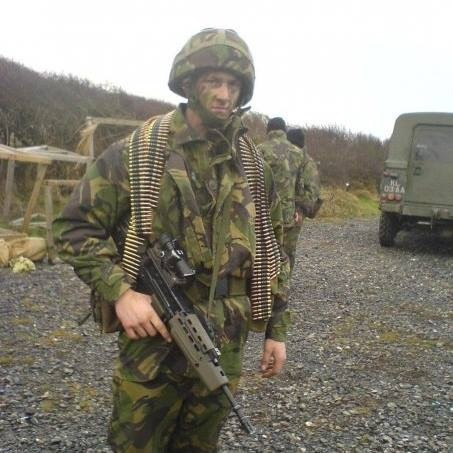Trailblazing gay soldier pans 'OK to cry' British Army ad targeting minorities
KEY POINTS
- James Wharton served in the British Army for a decade and became a pioneer for LGBT rights in the UK military
- The campaign shies away from the core focus of the Army: "bringing death and destruction to the enemy"
One of the British Army's first openly gay soldiers has the panned the force's new recruitment drive, which highlights emotional support and diversity of race and sexuality in the military, as "fluffy".
The new campaign, running across TV, radio and online, confronts concerns potential soldiers may have. It answers questions including: "What if I get emotional?", "Can I be gay in the Army", and "Do I have to be a superhero?" One advert features a Muslim soldier describing how he feels he is allowed to practice his faith in the army.
General Sir Nick Carter, the head of the Army, told BBC Radio 4's Today programme that the adverts aim to solve the recruitment crisis facing the military. Fewer members of its core pool of white men aged between 16-25-years of age are applying. The British Army recruited 8,194 soldiers between April 2016 and March 2017, but suffered losses of 9,775 during that time. Around 10% of recruits were women, while 7.5% came from a BAME background.
While "Be The Best" is the Army's slogan, the current campaign had "belonging and team-building" at its centre, he added.
"Our society is changing and I think it is entirely appropriate for us therefore to try and reach out to a much broader base to get the talent we need in order to sustain combat effectiveness," he told the programme. Applications to the British Army had spiked by between 30 to 35% in the nine months since the first adverts of the campaign were rolled out, he added.
However, critics have questioned how effective or appropriate the campaign is. Ex-soldier and writer James Wharton told IBTimes UK that the campaign fails on a number of levels.

Wharton, 30, served in the Army as a member of the elite Household Cavalry regiment, the Blues and Royals, for a decade before leaving the forces in 2013. During this period he was openly gay, and has been widely credited with helping to change attitudes towards LGBT personnel in the military. His first book, Out In The Army, details his experience of being gay in the military and the challenges he faced, including enduring rocket attacks in Iraq.
"To-date, and certainly for my own part in joining the army, recruitment materials did at least touch on or broach head on the ultimate role of the armed forced: to defend the nation in time of war by closing in and bringing death and destruction to the enemy," he said. "These adverts completely steer clear of that bottom-line role of the army," he added . Previous campaigns, such as a Royal Marines advert that featured a computer game-style scenario where a soldier shoots a person, were more honest, he suggested.
"If the army needs to plug the recruitment gap it needs to do so with men and women who know full-well what the job involves," he added. "The advert's fluffy approach to the job could leave thoughts in the minds that you can pick and choose what elements of the job you wish." He also criticised the British Ministry of Defence for laying off thousands of soldiers in the early 2010s.
Commenting on the focus on emotions and diversity, he agreed that personnel can express their emotions and that gay people will be accepted.
"But, what you can't do in the army is say to your colleagues five minutes before the balloon goes up and you are expected to bayonet someone in the chest that you feel 'emotionally' not up to the job."
Wharton went on to highlight that former veterans are not offered support after they have left the military. "The army fails to support anybody when they leave," he said. "That's across the board: PTSD, housing, health, crime. The advert makes no mention of that, conveniently."

"I wasn't accepted in the army because I was gay, I was accepted because I was a bloody good soldier," he went on. "If I didn't have this foundation of being a decent soldier, I wouldn't have made the impact with gay equality that I went on to do so, and what I'm now known for."
Colonel Richard Kemp, the former commander of the British forces in Afghanistan, agrees with Wharton and told BBC News: "I think what the army needs to do in order to deal with its recruiting problem is not to specifically appeal to minorities – of course, the more people from all parts of society who join the better.
"But it's even more important than that to fill the army up with people who want to fight and want to be soldiers. And this, I don't think, will do that."
Major General Timothy Cross added that being "jolly nice to people" was the wrong approach to recruitment.






















